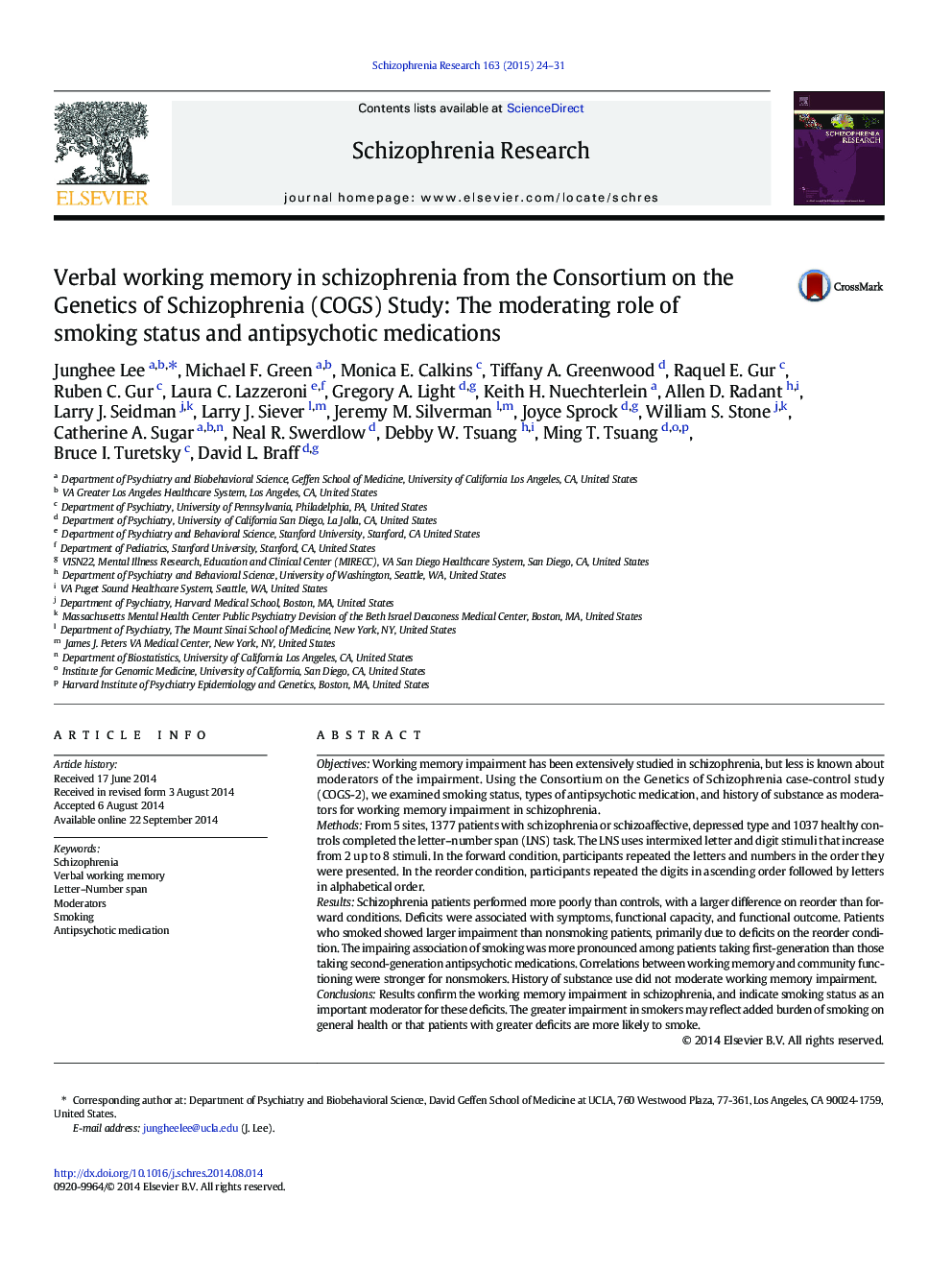| Article ID | Journal | Published Year | Pages | File Type |
|---|---|---|---|---|
| 339359 | Schizophrenia Research | 2015 | 8 Pages |
ObjectivesWorking memory impairment has been extensively studied in schizophrenia, but less is known about moderators of the impairment. Using the Consortium on the Genetics of Schizophrenia case-control study (COGS-2), we examined smoking status, types of antipsychotic medication, and history of substance as moderators for working memory impairment in schizophrenia.MethodsFrom 5 sites, 1377 patients with schizophrenia or schizoaffective, depressed type and 1037 healthy controls completed the letter–number span (LNS) task. The LNS uses intermixed letter and digit stimuli that increase from 2 up to 8 stimuli. In the forward condition, participants repeated the letters and numbers in the order they were presented. In the reorder condition, participants repeated the digits in ascending order followed by letters in alphabetical order.ResultsSchizophrenia patients performed more poorly than controls, with a larger difference on reorder than forward conditions. Deficits were associated with symptoms, functional capacity, and functional outcome. Patients who smoked showed larger impairment than nonsmoking patients, primarily due to deficits on the reorder condition. The impairing association of smoking was more pronounced among patients taking first-generation than those taking second-generation antipsychotic medications. Correlations between working memory and community functioning were stronger for nonsmokers. History of substance use did not moderate working memory impairment.ConclusionsResults confirm the working memory impairment in schizophrenia, and indicate smoking status as an important moderator for these deficits. The greater impairment in smokers may reflect added burden of smoking on general health or that patients with greater deficits are more likely to smoke.
